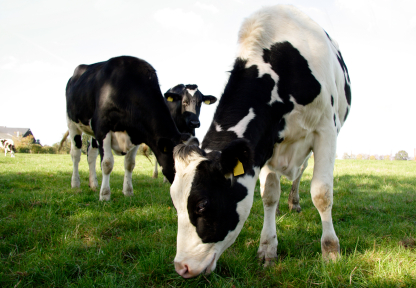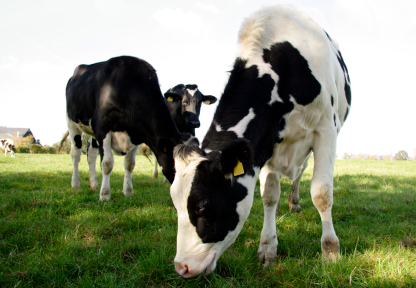In October 2008, the USDA proposed changes to the standards that govern organic dairy farming. Before, organic certification required farmers to give their cows “access to pasture,” which some large dairies chose to interpret, well, rather loosely.  How now, organic cow?
How now, organic cow?
On Friday, the agency released its final rules on the matter. Pasture standards for organic dairy production have been tightened significantly. According to the USDA’s press release, the new rules are as follows:
• Animals must graze pasture during the grazing season, which must be at least 120 days per year;
• Animals must obtain a minimum of 30 percent dry matter intake from grazing pasture during the grazing season;
• Producers must have a pasture management plan and manage pasture as a crop to meet the feed requirements for the grazing animals and to protect soil and water quality; and,
• Livestock are exempt from the 30 percent dry matter intake requirements during the finish feeding period, not to exceed 120 days. Livestock must have access to pasture during the finishing phase.
The proposal had created discord in the organic dairy world, with large operations like Aurora seeking less-restrictive rulings (its official commentary on the proposal can be found here.) Most small and mid-sized dairies rallied round the proposal. Straus Family Creamery, a mid-sized organic dairy farm and processor outside of San Francisco, has come under withering criticism from organic watchdog group Cornucopia for opposing the new measure.
For one take on that controversy, see Melanie DuPuis’ recent piece on Grist.



